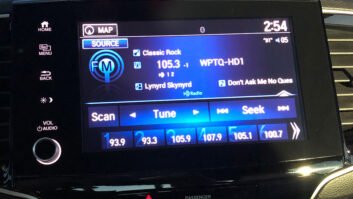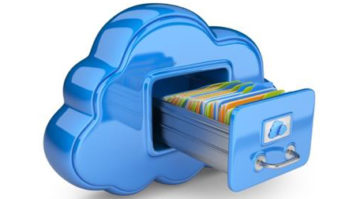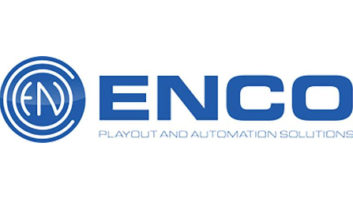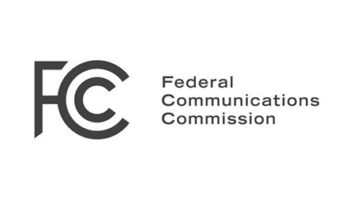Did you know that Federal Communications Commissioner Michael O’Rielly is a country music fan?
“From life’s highs to lows, country music captures our moments and memories, puts us at peace with the tragedies and heartbreaks, and prepares us to deal with future events.” He made that comment to a Country Radio Seminar in Nashville, saying he fell for the music after hitting a difficult patch in his life — “trouble with my job, a woman or just my future direction. It was testing my faith.”
He touched on several radio regulatory issues during his appearance, according to an FCC copy of his remarks, including a call to eliminate the requirement that radio stations must include correspondence in their public files.
The commissioner, a Republican, reiterated his philosophy that “one of the best things we can do for you is to work on getting out of your way. During my time at the commission I have focused a certain amount of my time on this effort.”
He mentioned changes to contest rules as an example. “A key component to this reform from my perspective was flexibility, in that the approach taken was to allow rather than require Internet disclosure. My intent in advocating for this change was to make compliance easier for broadcasters, not more difficult, so to the extent that any station would prefer to stick with its tried-and-true methods of disclosing contest rules, it can and should be able to do so.”
O’Rielly said he hopes to spur more reforms “allowing broadcasters to leverage the Internet in fulfilling requirements such as sponsorship ID and widespread advertising of employment opportunities.”
He also discussed the recent decision to require radio stations to post public files online. He said he would have preferred a “more flexible approach” but said these changes have the potential to reduce the compliance burden on stations.
Further, “The January order made clear that cable and satellite operators will no longer need to provide public access to an on-site paper file after moving the necessary records online, but broadcasters will not have this option due to the requirement that they also maintain files of correspondence from the public that arguably cannot be put online while protecting the privacy of the personal information. However, at my request the chairman agreed to open a new proceeding soon to consider eliminating correspondence file requirements completely, which would open up the pathway for broadcasters to realize all the potential benefits of an online public file transition and remove an outdated requirement.”
O’Rielly also reiterated his concerns about pirate radio, and said he hopes for more FCC news on that front soon.
“New York, New Jersey, Miami and Boston are main targets today, but the problem is expanding rapidly. … The current situation is completely unacceptable in my view. The protection of all licensed spectrum from harmful interference is one of the FCC’s fundamental obligations.”
He feels that efforts to keep pirate radio in the spotlight have begun to bear fruit. “A strong effort to raise awareness will make it much less likely that anyone in the chain will assist pirate radio operations in any capacity. After a slow start, I appreciate all of the chairman and the Enforcement Bureau’s efforts to work with me on this important issue, and hope to have further news very soon on our overall package of improvements.”
—
Here is the text of his remarks as provided by the FCC:
Good morning and thank you all for coming out so early to share some of your time with me. This is the first time I have had the happy opportunity to attend the Country Radio Seminar, but I’m under no illusions that an FCC Commissioner is the most exciting available option for your schedule today. It’s wonderful to be here in Nashville and have a chance to hear from so many passionate and dedicated people who help create country radio, a community near and dear to my heart.
Growing up near Buffalo, New York, I happen to be a big country music fan, which may be a bit unexpected. In fairness, my love for the music developed long after I moved to Washington, D.C. I had hit a rough patch with something – trouble with my job, a woman or just my future direction. It was testing my faith. But I vividly recall hearing Travis Tritt’s “It’s a Great Day to be Alive” and it slowed my anxiety, put everything into perspective.
I don’t have to convince this audience of how well country music connects with the lifestyles and experiences of Americans. From life’s highs to lows, country music captures our moments and memories, puts us at peace with the tragedies and heartbreaks, and prepares us to deal with future events. Unlike many other music genres, we see and hear the personal stories of country music’s recording stars play out in the lyrics and melodies. How can you not want to cry when you hear Carrie Underwood’s “Just a Dream,” want to salute the flag during Toby Keith’s “American Soldier,” or reminisce with Eric Church in “Springsteen.”My local station, 98.7 WMZQ, serves me well, as it’s generally the first thing I hear in the morning and a comforting voice on my drive home.
The work you all do adds so much to your communities by connecting people together every day. In an ever more crowded and fiercely competitive entertainment market, some may have once imagined that video content would eventually replace what radio had to offer, but, radio has persevered as people don’t actually want to watch screens all the time. The unmistakable appeal of country music has evolved for new generations and kept your stations thriving into 2016 with no slowdown in sight. A recent study showed that 74 percent of country radio listeners are “very satisfied” with their country stations. That’s a pretty impressive approval rating that many of us in Washington, DC can only dream of someday achieving in our work. Maybe today is a good chance for me to take some notes from all of you! Listeners praised your choices in music and your strong talent who sound like friends and create a feel-good atmosphere, and talking with many of you it is easy to see why this is the case.
Country radio is certainly one of the big success stories of the radio industry as a whole, as the top format in the U.S. in terms of the number of stations and the top two or three in terms of audience ratings. And, of course, it’s an essential incubator and ambassador for the growing country music industry. A look at the advertising side just confirms the ongoing vitality of your businesses. While overall radio revenues are holding steady, country has shown the power to keep growing revenues and expand reach even further through digital and off-air avenues. And I’m sure that with the lead up to a certain event approaching in November, many of you are expecting a banner year.
I’m looking forward to hearing from you about how we at the FCC can be helpful, but given all of this good news, it seems to me that one of the best things we can do for you is to work on getting out of your way. During my time at the Commission I have focused a certain amount of my time on this effort. For instance, the Internet has made so many things much easier to accomplish in the real world, and I have been pushing the Commission to recognize this reality. By revisiting old rules, we can bring more of the benefits and efficiencies made possible by the Internet to all of the companies we regulate, and in particular broadcasters. Last year, the Commission responded to a 2012 broadcaster petition to change the 40-year-old Contest Rule. Now, stations can disclose the terms of promotional contests to consumers via their websites instead of speed-reading through a long list of rules on-air. As well as allowing broadcasters to free up valuable on-air time for more content, this update should improve consumer access to contest terms by making it possible to put the information where consumers are most likely to look, and where they will be able to read and digest it 24 hours a day.
But a key component to this reform from my perspective was flexibility, in that the approach taken was to allow rather than require Internet disclosure. My intent in advocating for this change was to make compliance easier for broadcasters, not more difficult, so to the extent that any station would prefer to stick with its tried-and-true methods of disclosing contest rules, it can and should be able to do so. It’s an important point to keep in mind for future efforts.
Too often at the FCC, it seems that a well-intentioned suggestion to reconsider a burden imposed by an outdated rule ends up leading to the Commission considering options that actually make the situation much worse. It’s a classic case of “be careful what you wish for.” You can be sure that I will stay alert to any possibility of this dynamic, and attentive to your feedback. With this caveat in mind, I am optimistic that during my time at the Commission it will be possible to spur many more badly-needed reforms allowing broadcasters to leverage the Internet in fulfilling requirements such as sponsorship ID and widespread advertising of employment opportunities.
Last month, the Commission made a move to transition the public inspection files your stations maintain to an online format. While I may have preferred a more flexible approach, this change has the potential to reduce your compliance burden while improving consumers’ access to information. In our highly connected world, the Internet clearly is a much more appropriate place for this type of public information than a physical paper file that has to be maintained and made accessible to anyone who walks in, without notice or even identification, at a station’s facility. In fact, the current system subjects station employees to security vulnerabilities that I believe should be eliminated as soon as a station completes the transition to an online public file. The January order made clear that cable and satellite operators will no longer need to provide public access to an on-site paper file after moving the necessary records online, but broadcasters will not have this option due to the requirement that they also maintain files of correspondence from the public that arguably cannot be put online while protecting the privacy of the personal information. However, at my request the Chairman agreed to open a new proceeding soon to consider eliminating correspondence file requirements completely, which would open up the pathway for broadcasters to realize all the potential benefits of an online public file transition and remove an outdated requirement. Stay tuned for further updates, as your active participation in this proceeding would be very helpful in moving it forward in a swift and decisive way.
Another area where we have seen some recent progress is in refocusing FCC enforcement efforts on pirate radio operators. While pirate radio may not be a top concern in some of your communities for the time being, given the widespread success of the country format, you can be sure that there is already an impact on some stations in our nation’s largest markets. New York, New Jersey, Miami, and Boston are main targets today, but the problem is expanding rapidly. Advances in technology have made the necessary transmission equipment much less expensive and easier to obtain, and failure to recognize this reality and step up enforcement accordingly over the years has allowed pirate radio to proliferate and spread like poison ivy in the garden of the radio spectrum. The current situation is completely unacceptable in my view. The protection of all licensed spectrum from harmful interference is one of the FCC’s fundamental obligations. And far from being cute, harmless, or even somehow arguably useful, pirate radio represents an attack on the integrity of our airwaves – an attack that must be confronted and defeated on no uncertain terms, lest it continue to push forward.
Broadcasters’ dogged efforts to bring the Commission’s attention to this problem have finally started to bear some fruit, I am pleased to be able to say. My office has been working hard to outline a clear and unequivocal articulation of the Commission’s pirate radio policies and enforcement goals. This will be used in an outreach and education effort directed toward entities such as building owners, advertisers, political campaigns, concert promoters, and venue operators that may be unwittingly enabling pirate operators. The vast majority of legitimate companies and associations want absolutely nothing to do with facilitating illegal activities, so a strong effort to raise awareness will make it much less likely that anyone in the chain will assist pirate radio operations in any capacity. After a slow start, I appreciate all of the Chairman and the Enforcement Bureau’s efforts to work with me on this important issue, and hope to have further news very soon on our overall package of improvements. Coupled with a beefed-up enforcement effort against pirate radio violators, I am confident that the FCC can decisively reverse the trend lines and send a message that under no circumstances and in no frequencies will we stand by and tolerate interference with our licensees.
So those are a few of my thoughts on recent FCC activities that hopefully are of some interest to you. I’d like to go ahead and open the floor now to any questions that you may have on these or any other pressing issues, but please also know that I am happy to hear from you anytime if I may be able to be of assistance. I’m always on the lookout for new ideas that could help make the regulatory environment a little more conducive for you and your businesses, while at the same time improving the service to your listeners.











